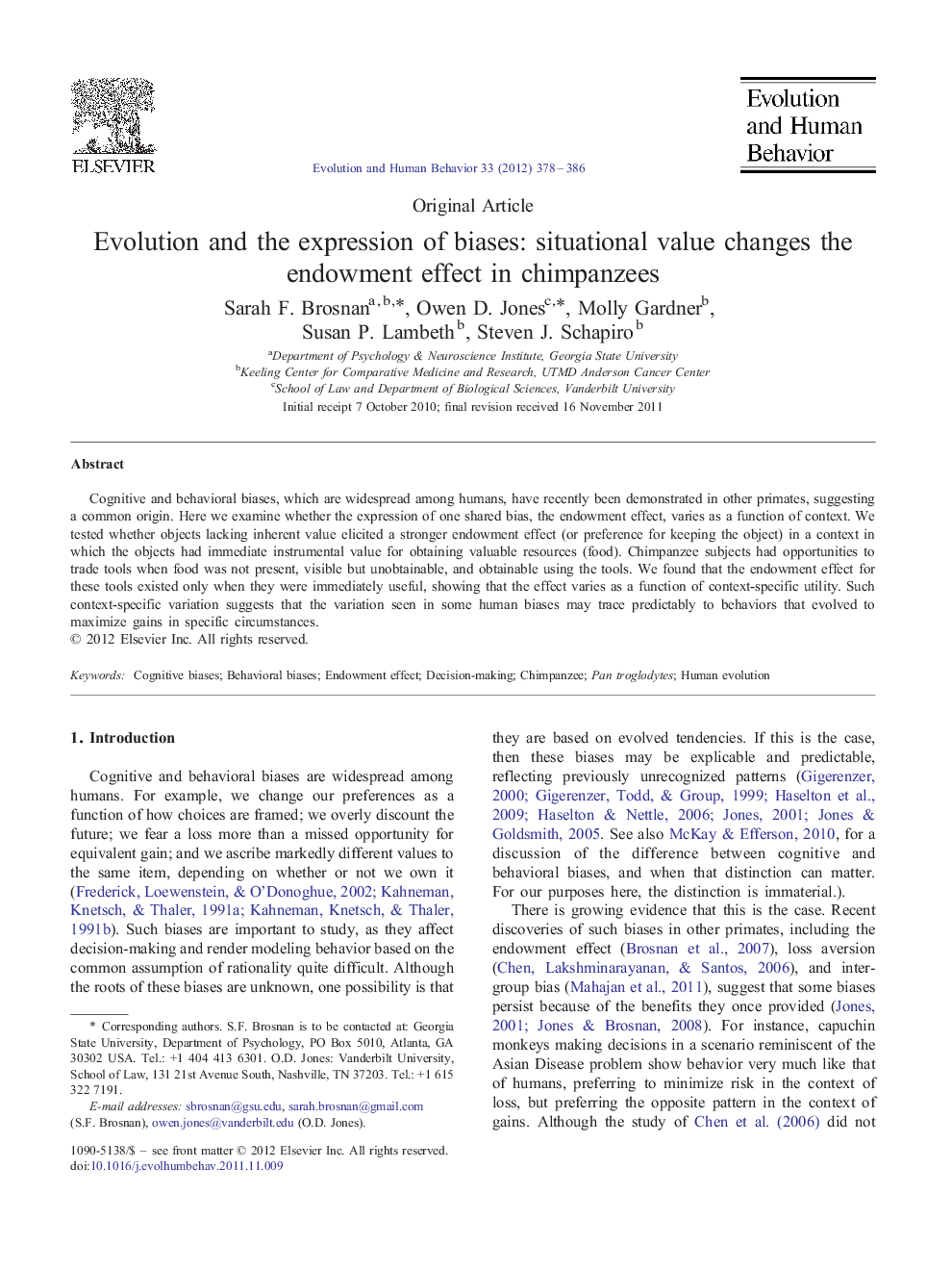| Article ID | Journal | Published Year | Pages | File Type |
|---|---|---|---|---|
| 943381 | Evolution and Human Behavior | 2012 | 9 Pages |
Cognitive and behavioral biases, which are widespread among humans, have recently been demonstrated in other primates, suggesting a common origin. Here we examine whether the expression of one shared bias, the endowment effect, varies as a function of context. We tested whether objects lacking inherent value elicited a stronger endowment effect (or preference for keeping the object) in a context in which the objects had immediate instrumental value for obtaining valuable resources (food). Chimpanzee subjects had opportunities to trade tools when food was not present, visible but unobtainable, and obtainable using the tools. We found that the endowment effect for these tools existed only when they were immediately useful, showing that the effect varies as a function of context-specific utility. Such context-specific variation suggests that the variation seen in some human biases may trace predictably to behaviors that evolved to maximize gains in specific circumstances.
